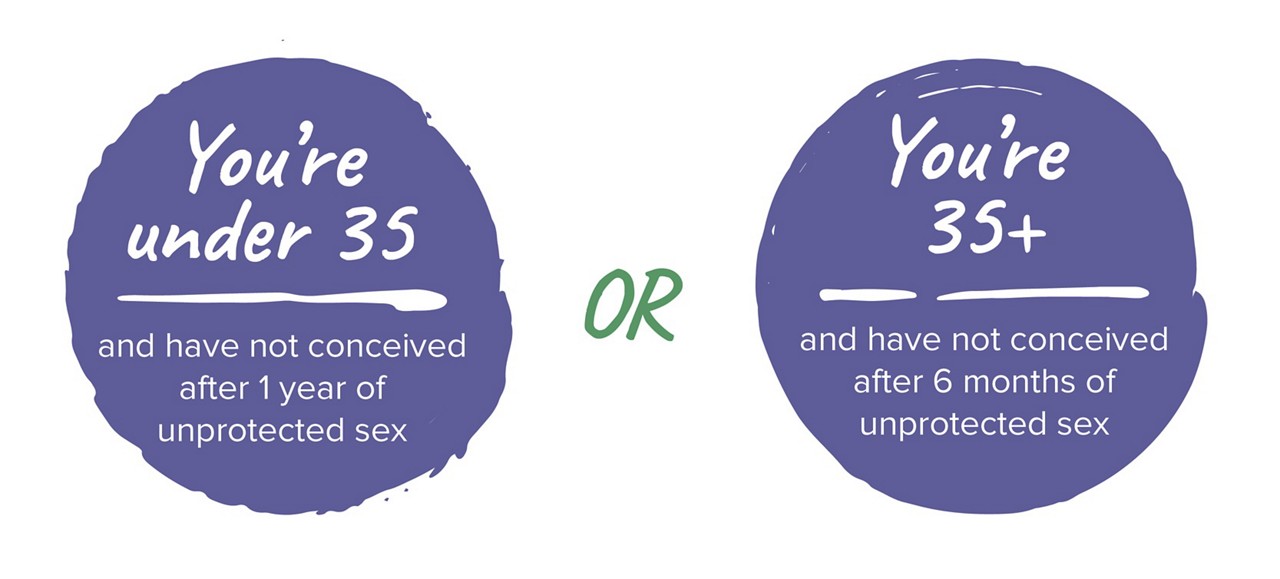Although age plays a much more important role for women, a man’s fertility also declines with age. While men can often father children later in life, those 40 or older are more likely to have problems conceiving.
It can help to speak to a doctor if you’re concerned about your age or medical history. You should also seek help if you have or have had:
- Sexually transmitted diseases
- Pelvic/genital infections
- Abdominal surgery
- Reversal of surgical sterilization
- Chronic medical conditions, such as diabetes or high blood pressure
- Chemotherapy or radiation therapy
- Mumps after puberty
- Urologic surgery
- Prostate infection






